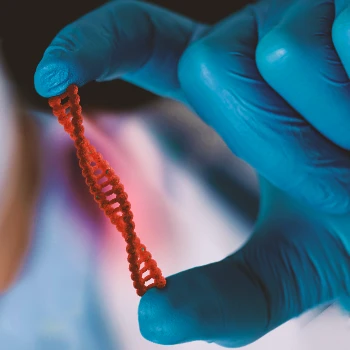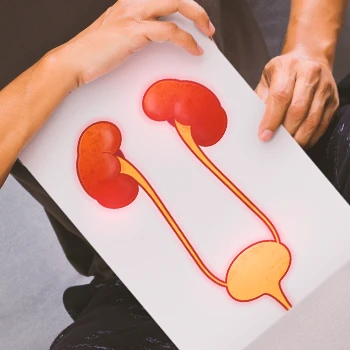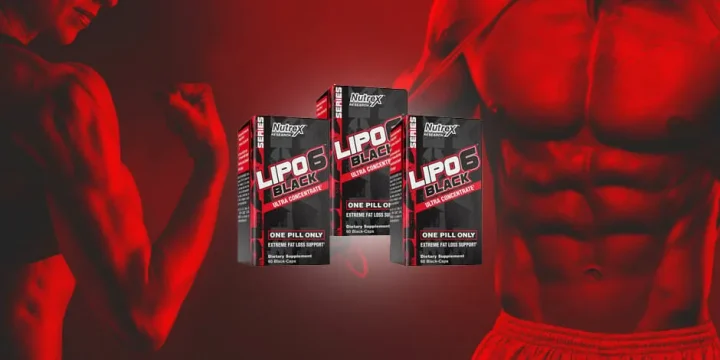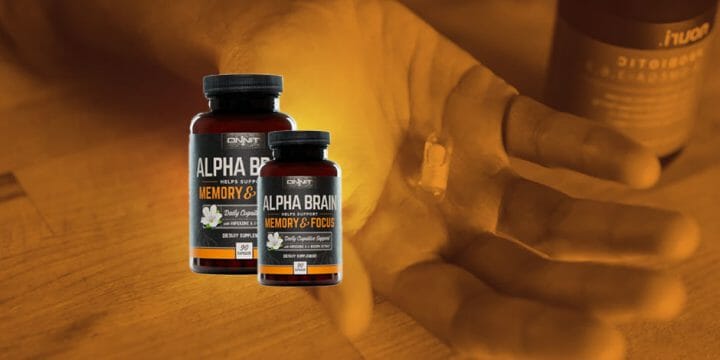While low testosterone levels come with a wide range of health issues, it’s important to understand that testosterone replacement therapy (TRT) can also lead to some challenging problems.
As a personal fitness coach, I have dealt with several people who ended up with health issues due to self-administering testosterone therapy rather than go with a trusted clinic.
So, I spent a few days doing in-depth research and decided to spend a few hours with a doctor going over scientific studies about serious side effects. This should help our readers understand what to expect with their treatment.
Quick Summary
- TRT side effects can be relatively minor, like acne and changes in body hair, but there are more serious issues to be aware of.
- Testosterone treatment could also impact prostate cancer, blood clots, and your cardiovascular system, especially when the dose and timing aren’t carefully monitored by a doctor.
- To minimize the risks associated with testosterone therapy, it’s important to only deal with a reputable and trusted clinic.
- In addition to trusted medical clinics, thorough patient education is essential for managing the risks associated with TRT, aiming for a balance in testosterone levels to avoid long-term health problems.
Most Common Testosterone Therapy Side Effects

In this section, I have collected the most severe side effects related to testosterone replacement therapy.
Too many men focus just on the benefits they might get in terms of muscle mass for bodybuilding with TRT while completely ignoring the risks of prostate cancer and stroke.
Let’s take a closer look.
Heart Issues
The doctor who helped with rewiring the scientific literature pointed me to a very important study from 2017, which highlighted a link between testosterone therapy and arterial plaque [1].
The reason this is so important to understand is that many people just focus on the cardiac issues that come with testosterone deficiency.
The assumption then often is that because low testosterone levels are harmful to your heart, high levels are positive. In reality, having T-levels that are too high can also cause heart issues that gradually accumulate.
But with proper medical supervision during treatment, such risks are significantly lower.
Blood Clotting

Since 2014, the FDA has required that all forms of testosterone therapy provide warning labels about the risks of blood clots [2].
And this is not just limited to patients who are dealing with age-related low testosterone levels.
The research suggests that there is a link between hormone replacement therapy and increases in thromboxane.
This is a hormone that can cause blood vessels to constrict, leading to red blood cells clotting.
It’s unclear how much this is linked to the dosage of testosterone supplementation, and that’s why it’s so important to ensure that a doctor fully reviews your medical history and monitors your response to the treatment.
Stroke Risks
Similar to the risk of red blood cells clotting, the FDA has required all types of TRT to have warnings about the increased risk of strokes.
More specifically, research published by the New England Journal of Medicine found this specific link in older men [3].
Because the reasons for this risk are still unclear, doctors assume that it can happen with any form and dosage of testosterone therapy.
It’s also one of the reasons why it’s so important to aim for a normal range when treating low testosterone levels rather than allowing an increase to elevated T levels.
Metastatic Prostate Cancer Risk

Some initial research in the early 2000s suggested that the increased risk of prostate cancer development was very high.
However, the difficulty was in distinguishing between men who had already developed prostate cancer cells and those who had benign prostatic hyperplasia (a non-cancerous issue).
More recent research from 2015 suggests that while there is a link between treating low testosterone levels and cancer, it’s still very unclear how to assess those risks [4].
And because of that, doctors remain cautious and don’t necessarily recommend TRT for people who have a family history of prostate cancer.
Male Breast Cancer
One of the less common side effects that are also still not fully understood is the link to breast cancer.
The theory is that excessive serum testosterone increases ultimately lead to the hormone being broken down into estrogen.
This, in turn, could then lead to an increased risk of developing cancer cells in the breast, and there is some evidence of this through a meta-analysis of multiple studies [5].
As a personal trainer, I have seen many men who take large amounts of steroids, with the result being gynecomastia or the development of enlarged breast tissue [6].
With that in mind, it seems like there are valid reasons to be concerned about breast cancer.
Impact on Obstructive Sleep Apnea

Obstructive sleep apnea is a condition where the airways completely collapse during sleep [7].
The risk here is not just the disruption to sleep and the health risks that come with it. But in both the short and long term, sleep apnea can be a serious issue.
There is scientific evidence that testosterone therapy can increase the risk of apnea, and if you already have such a diagnosed health condition, then TRT might be too risky [8].
But also keep in mind that excessively low T-levels due to male hypogonadism could lead to the same issue [9].
It’s just another reason not to mess with these treatments without medical support.
Mood Swings
Another thing that is more common with testosterone therapy is the impact it can have on men’s mental health. There is evidence that it’s directly linked to increased risks of depression and mood swings [10].
While low testosterone levels can also lead to depression and anxiety, it’s sudden increases that can be particularly disruptive.
A common term in the fitness industry is “roid-rage,” which is short for “steroid-rage.” It’s something I have witnessed, and it can come with crashing depression as well as mental highs and lows.
It’s why many doctors recommend that their patients keep a journal where they write down how they feel every morning and evening.
More on this shortly.
Urinary Tract Symptoms

Another issue that you need to take into consideration with testosterone therapy is how it could impact urinary tract issues [11].
The studies so far have reported that it could be an interaction between the prostate that gets stimulated by an increase in testosterone.
It seems like it’s more common with men who have previously had a UTI, and doctors need to carefully monitor if the chosen treatment, testosterone administration, and dosage make things worse.
“TRT can cause fluctuations in testosterone levels, which can affect energy levels, libido, mood, and the presence of symptoms such as breast tenderness.”
- Megan Soliman, MD
You May Also Like: TRT Acne
Does Testosterone Replacement Therapy Have Long-Term Effects?

Yes, testosterone replacement therapy can have long-term effects that might have significant health impacts.
Medical research suggests that the longer men are kept on a testosterone therapy prescription, the more important it is for doctors to monitor the treatment and adjust the dosage to limit those side effects.
But you have to weigh that up against the risks that come with low testosterone levels [12].
From reduced bone density and increased body fat, it’s not just a hormone that regulates sexual function.
During initial consultations, doctors will carefully evaluate the severity of your symptoms of low testosterone, and they use that to determine the risk-reward factor.
This is not a 100% exact science, and it’s why doctors have to spend so much time assessing your overall health.
And even once you get the medical OK to start treatment, it’s important for doctors to monitor for early signs of long-term issues.
Related Posts:
Monitoring Your Body’s Responses

There are two things you need to keep in mind when monitoring your progress and response to TRT.
One of them requires you to spend just a few minutes each day doing some journaling.
During my research on this topic with a doctor, he mentioned that he always asks his patients to keep a journal and write down how they feel in the morning and evening.
This should cover things like:
- Mood
- Stress
- Energy
- Sexual function
- Any kind of soreness
The idea is to get into the habit of listening to your body. But it also helps patients to provide information about improvements and possible issues when it comes to a repeat consultation.
The other part of monitoring progress involves medical testing and assessment. First of all, you will need to do a repeat blood test to confirm if your low testosterone levels have improved.
You should also talk to your doctor about having a DEXA scan done, which will check your bone density, body fat, and muscle mass [13].
When you combine all this information, your doctor will be able to make much better decisions on how to adjust your treatment and limit the side effects.
“Your best option will depend on your medical needs as well as your lifestyle. Some methods require daily administration, while others only need to be done on a monthly basis.”
- Alan Carter, PharmD
Dealing With Trusted Medical Providers

Another thing you have to keep in mind in order to limit the side effects of testosterone replacement therapy is the need to deal with a trusted and licensed medical clinic and doctor.
Here’s why that’s important.
For a long time, there were shady online services offering TRT without the actual involvement of doctors.
It might have even seemed like you were assessed by medical professionals, but it could be all just a front to the illegal sale of restricted drugs.
However, things have changed a lot, and there are now fully licensed and reputable online TRT clinics.
These employ experienced doctors in men’s health issues, and you’ll have to go through blood tests and medical consultations before you get your hands on any testosterone medications.
Only if these doctors determine that you have low testosterone levels and significant health issues relating to it will they get you set up for treatment.
And when it comes to choosing such clinics, you have to be sure that you’re only considering the most reputable and effective options.
FAQs
Is TRT Worth the Side Effects?
Yes, testosterone therapy can be worth the side effects as long as the benefits outweigh the risks. You should not be risking cancer and strokes in order to improve your libido and muscle strength, and that’s why it’s important to involve a doctor in the decision.
How Long Can You Safely Be On TRT?
With the right monitoring and treatment, men can safely be on testosterone therapy indefinitely. And for many men, that is a reality they need to account for if they have an underlying condition that means their natural testosterone production won’t increase.
Will Your Body Go Back to Normal After TRT?
Yes, your body may go back to normal after TRT, especially when you look at overall muscle mass. Once your T-levels go down again, it will be more difficult to maintain the muscles you gained.
Does TRT Cause Long-Term Damage?
Yes, testosterone therapy may cause long-term damage if the treatment is not monitored by a professional. There are many serious long-term side effects, including strokes and heart attacks, but doctors can monitor for signs like this and make adjustments to your treatment.
References:
- https://www.ncbi.nlm.nih.gov/pmc/articles/PMC5465430/
- https://www.drugwatch.com/testosterone/side-effects/
- https://www.nejm.org/doi/full/10.1056/nejmoa1000485
- https://www.ncbi.nlm.nih.gov/pmc/articles/PMC4647137/
- https://pubmed.ncbi.nlm.nih.gov/32235278
- https://www.hopkinsmedicine.org/health/conditions-and-diseases/gynecomastia
- https://www.ncbi.nlm.nih.gov/books/NBK459252/
- https://www.liebertpub.com/doi/10.1089/andro.2020.0001
- https://www.ncbi.nlm.nih.gov/pmc/articles/PMC6305865/
- https://pubmed.ncbi.nlm.nih.gov/24016385/
- https://journals.sagepub.com/doi/10.1177/1557988315590655
- https://www.health.harvard.edu/mens-health/is-testosterone-therapy-safe-take-a-breath-before-you-take-the-plunge
- https://my.clevelandclinic.org/health/diagnostics/10683-dexa-dxa-scan-bone-density-test
About The Author
You May Also Like






